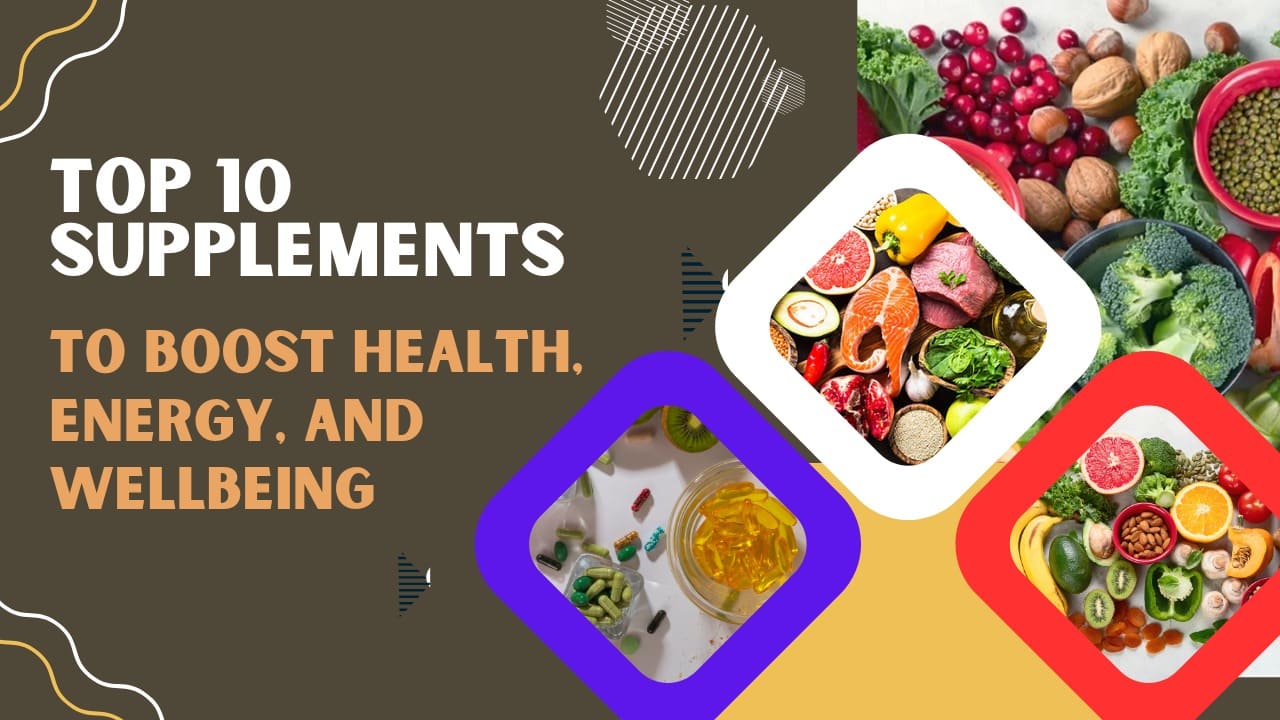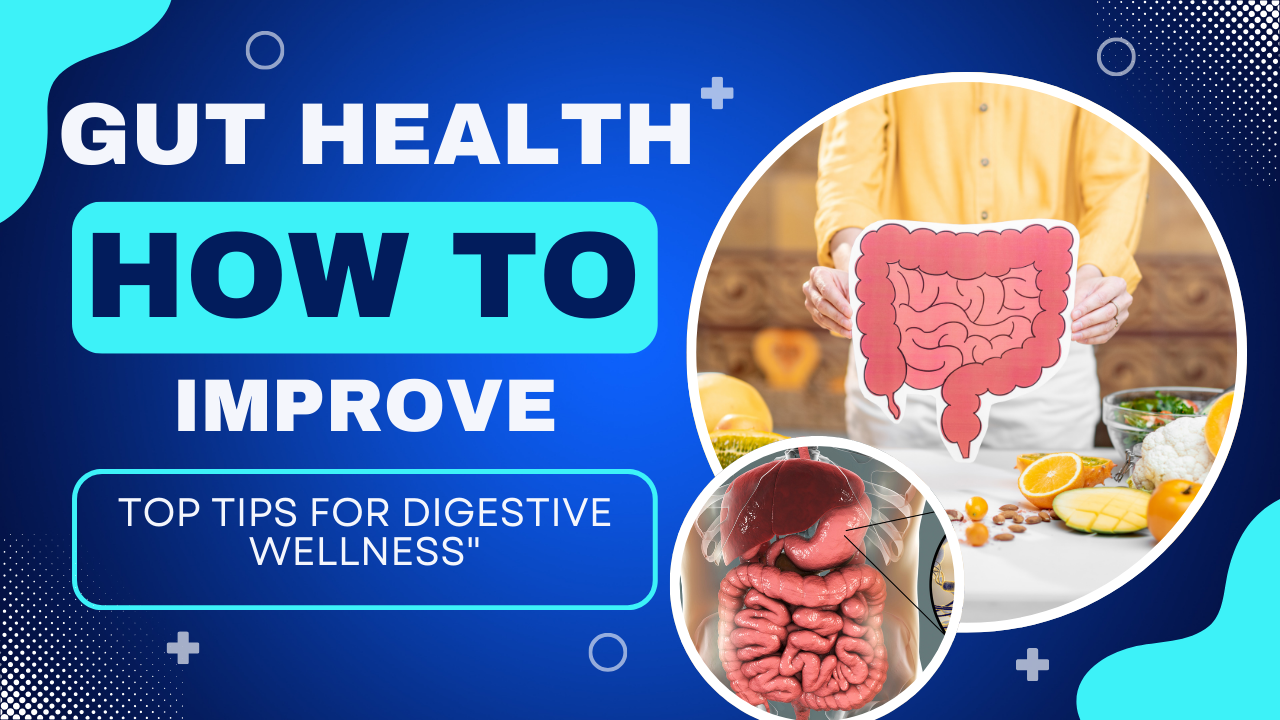Maintaining optimal health goes beyond just eating clean and exercising. Today, many people are turning to nutritional supplements to support their overall WellBeing. These supplements can help bridge the gap between diet and wellness, offering additional benefits that food alone may not provide.
Supplements can Improve energy levels, boost the immune system, and support mental clarity. With the right supplements, individuals can experience improved focus, better mood, and even enhanced physical performance. They also play a role in promoting better sleep quality, contributing to a more balanced and healthy lifestyle.
However, it’s important to remember that not all supplements are the same. Their effectiveness often varies depending on individual needs and health goals. Choosing the right supplement tailored to your personal WellBeing can help you achieve better health outcomes, ensuring that you’re supporting your body in the most effective way possible.
In this article, we’ll explore the top 10 supplements scientifically known to support and improve overall well-being. We’ll explain their benefits, ideal usage, and any precautions you should be aware of.
Why Supplements Matter for Overall Well-Being
The modern lifestyle, with its processed foods, irregular eating habits, and stress, often leads to nutritional deficiencies. While a well-balanced diet should ideally provide all necessary nutrients, the reality is that many people fail to meet their daily requirements.
Supplements are not a substitute for a poor diet but can serve as a powerful adjunct to ensure the body functions optimally. They can help:
Fill nutritional gaps
Enhance energy and mood
Improve immunity
Support cognitive and cardiovascular health
Improve digestion and gut health
Let’s dive into the top 10 supplements that can elevate your overall well-being.
Multivitamins

Multivitamins are dietary supplements that provide a combination of essential vitamins and minerals. They serve as a safety net, ensuring that the body gets the nutrients it needs, particularly when diet alone may fall short.
By filling nutritional gaps, multivitamins support overall wellbeing and help maintain optimal health. They can boost energy levels, strengthen immunity, and improve overall vitality. With a balanced mix of nutrients, they play an important role in enhancing daily health and wellbeing, especially for those with busy lifestyles or specific dietary restrictions.
Key Benefits
Support immune system function
Improve energy levels
Promote skin, bone, and eye health
Prevent nutritional deficiencies
Recommended For: People with busy lifestyles, seniors, vegetarians, or anyone with a known dietary gap.
Caution: Avoid high doses of fat-soluble vitamins like A, D, E, and K, as they can build up in the body and become toxic. Maintaining balanced vitamin intake is crucial for your wellbeing, ensuring you receive the right nutrients without risking harmful effects from excess levels.
Omega-3 Fatty Acids (Fish Oil)
Omega-3 fatty acids, especially EPA and DHA found in fish oil, are essential for maintaining brain and heart health. These nutrients support cognitive function, enhance memory, and may even reduce the risk of heart disease.
Including Omega-3s into your diet is vital for overall wellbeing. They help reduce inflammation, improve circulation, and support mental clarity. By boosting both brain and heart health, Omega-3s contribute to a balanced and healthy lifestyle, supporting long-term physical and mental vitality.
Key Benefits
Reduces inflammation
Supports cardiovascular health
Enhances cognitive function
Improves skin and joint health
Recommended For: Those who don’t eat enough fatty fish (like salmon, mackerel), people with joint issues, or those at risk for heart disease.
Caution: Can act as a blood thinner; consult a doctor before combining with anticoagulants.
Probiotics

Probiotics are live beneficial bacteria that support a healthy gut microbiome. This microbiome plays a vital role in digestion, immunity, and overall wellbeing. By balancing the gut bacteria, probiotics help promote proper digestion and nutrient absorption.
In addition to digestive health, a healthy gut microbiome also impacts mental health. Probiotics can help reduce stress and improve mood, supporting both mental and physical wellness. Regularly including probiotics into your routine can lead to a stronger immune system and contribute to overall health, promoting a more balanced and vibrant life.
Key Benefits
Improves digestion and nutrient absorption
Boosts immune function
Supports mental health (gut-brain connection)
Reduces symptoms of IBS and bloating
Recommended For: People with digestive issues, those on antibiotics, or anyone aiming to improve gut health.
Caution: Choose strains backed by research (like Lactobacillus and Bifidobacterium). Not all products are equal.
Vitamin D
Vitamin D, often referred to as the “sunshine vitamin,” is crucial for maintaining bone health and supporting immune function. It helps the body absorb calcium, which is vital for strong bones and teeth.
In addition to physical health, Vitamin D also plays a role in mood regulation, contributing to overall wellbeing. Adequate levels of Vitamin D can improve mental clarity, reduce feelings of depression, and promote emotional balance. Ensuring you get enough Vitamin D through sunlight, food, or supplements supports both your physical and mental health, enhancing overall vitality and wellbeing.
Key Benefits
Strengthens bones and teeth
Supports immune defense
Enhances mood and fights depression
May reduce risk of chronic disease
Recommended For: Individuals with limited sun exposure, darker skin tones, or those living in colder climates.
Caution: Overdosing on vitamin D can lead to calcium buildup in the blood, resulting in kidney issues.
Magnesium

Magnesium is a vital mineral involved in over 300 enzymatic processes in the body. It plays a crucial role in muscle function, nerve health, and maintaining a healthy heart.
In addition to supporting physical health, magnesium also impacts mental health by promoting relaxation and reducing stress. Adequate magnesium levels are essential for overall wellbeing, as they help improve sleep quality, reduce anxiety, and support cognitive function. Ensuring you get enough magnesium can enhance both physical and mental vitality, contributing to a balanced and healthier lifestyle.
Key Benefits
Reduces stress and anxiety
Improves sleep quality
Supports heart and muscle function
Regulates blood sugar and pressure
Recommended For: People experiencing stress, poor sleep, muscle cramps, or frequent headaches.
Caution: Magnesium in excess can cause diarrhea; opt for magnesium glycinate or citrate for better absorption and fewer side effects.
Ashwagandha
Ashwagandha, an adaptogenic herb used in Ayurvedic medicine, helps the body adapt to stress and restore balance. It supports the body’s natural ability to cope with daily stressors, promoting a sense of calm and stability.
In addition to stress management, Ashwagandha also supports overall wellbeing. It may improve energy levels, enhance mood, and even boost mental clarity. Regular use of Ashwagandha can help maintain physical and mental balance, contributing to better overall health and a more resilient lifestyle.
Key Benefits
Reduces cortisol levels
Enhances stress resistance
Improves sleep and mood
May increase energy and endurance
Recommended For: Individuals dealing with high stress, anxiety, fatigue, or poor sleep quality.
Caution: Can interact with thyroid medications; consult a healthcare provider if you have thyroid conditions.
Turmeric (Curcumin)
Curcumin, the active compound in turmeric, is known for its powerful anti-inflammatory and antioxidant properties. It helps reduce inflammation in the body, promoting joint health and easing discomfort.
Beyond its physical benefits, curcumin also supports overall wellbeing by protecting cells from oxidative damage. It can enhance brain function, improve mood, and support heart health. Including curcumin into your routine can help maintain a healthy balance, boosting both your physical health and mental vitality, contributing to a more vibrant and well-rounded lifestyle.
Key Benefits
Reduces chronic inflammation
Improves joint and muscle health
Supports brain function
May protect against age-related diseases
Recommended For: People with joint pain, inflammation, or those looking for natural anti-aging support.
Caution: Curcumin has poor bioavailability; choose supplements with piperine (black pepper extract) for better absorption.
Zinc

Zinc is a trace mineral that plays a crucial role in immune function, helping the body defend against illness and infections. It also supports wound healing, promoting faster recovery and tissue repair.
In addition to its immune-boosting benefits, zinc is essential for DNA synthesis, which is important for cell growth and division. Maintaining optimal zinc levels is key for overall wellbeing, as it supports healthy skin, promotes proper growth, and enhances cognitive function. Zinc contributes to a balanced and healthy lifestyle, supporting both physical and mental health.
Key Benefits
Boosts immune defense
Speeds up recovery from colds
Supports skin health and wound healing
Enhances reproductive health
Recommended For: People prone to frequent infections or with skin conditions like acne.
Caution: Too much zinc can impair copper absorption and weaken immunity. Stick to recommended dosages.
B-Complex Vitamins
B vitamins are essential for energy production, helping the body convert food into usable energy. They also play a critical role in maintaining brain health, supporting cognitive function, and enhancing mood.
In addition to energy and brain health, B vitamins are important for red blood cell formation, ensuring proper oxygen distribution throughout the body. Adequate levels of B vitamins contribute to overall wellbeing, promoting physical vitality and mental clarity. By supporting energy, brain function, and circulation, B vitamins help maintain a balanced and healthy lifestyle.
Key Benefits
Supports energy metabolism
Improves mental clarity and focus
Enhances mood and reduces fatigue
Promotes nervous system health
Recommended For
Those with high stress, vegetarians, vegans, or people with low energy.
Caution: Water-soluble and generally safe, but high doses of B6 over time can cause nerve damage.
Melatonin

Melatonin is a hormone naturally produced by the pineal gland that helps regulate the sleep-wake cycle. It plays a crucial role in signaling to the body when it’s time to sleep, promoting restful and restorative sleep.
By supporting healthy sleep patterns, melatonin contributes to overall wellbeing. Adequate sleep is vital for physical recovery, mental clarity, and emotional balance. When sleep quality improves, it enhances mood, boosts energy levels, and supports immune function, helping you feel more balanced and energized throughout the day.
Key Benefits
Improves sleep onset and quality
Supports in overcoming jet lag
Supports circadian rhythm alignment
Can improve mood through better rest
Recommended For: People with insomnia, jet lag, shift workers, or sleep disorders.
Caution: Should be used short-term; long-term effects are still under research. Not suitable for children without medical advice.
How to Choose the Right Supplements
Not every supplement is right for everyone. Here are a few tips to make informed choices:
Assess Your Needs: Start by considering your lifestyle factors, health goals, and potential nutrient deficiencies. Think about your diet, exercise routine, stress levels, and any specific health concerns. Identifying these factors can help you choose the supplements that best support your overall health and wellbeing.
Consult a Healthcare Provider: It’s important to speak with a healthcare professional before adding supplements to your routine, especially if you’re pregnant, have chronic health conditions, or are taking medication. They can help ensure the supplements you choose are safe and appropriate for your individual health needs, preventing any adverse effects.
Check Quality: Look for supplements that are third-party tested by organizations like NSF or USP. This ensures that the product is safe, contains the ingredients it claims, and meets quality standards. High-quality supplements provide better effectiveness and reduce the risk of contamination or impurities.
Start Low, Go Slow: When introducing a new supplement, start with a lower dose to assess how your body reacts. Gradually increase the dosage if necessary, but always do so under the guidance of a healthcare provider. This helps minimize any side effects and ensures the supplement is effective for your needs.
Watch for Interactions: Be aware that some supplements may interact with medications or other nutrients. Always check for potential interactions to avoid any negative effects on your health. Your healthcare provider can guide you on the best way to including supplements into your routine without causing conflicts with other treatments.
Final Thoughts and Safety Considerations

Supplements can significantly enhance your overall wellbeing when chosen carefully. While they aren’t a cure-all, they can support your health goals when paired with a healthy diet, regular exercise, and quality sleep. Supplements should be viewed as a complementary tool rather than a replacement for proper lifestyle habits.
Prioritize real, nutrient-dense foods, stay hydrated, and maintain consistency with healthy routines. Supplements are most effective when they fill nutritional gaps or support specific needs in your diet. Including them in a balanced way can improve energy, immunity, and mental clarity.
Remember, more isn’t always better. Listen to your body and adjust supplement use as needed, ideally under the guidance of a healthcare provider. This approach ensures that you’re supporting your wellbeing in a safe, sustainable way, helping you achieve long-term health goals.
FAQs
Q1: Can I take all 10 of these supplements at the same time ?
Answer: While all the supplements listed offer health benefits, taking them all simultaneously is not recommended without consulting a healthcare provider. Some may interact with each other or with medications you may be taking. It’s best to assess your individual needs, prioritize a few based on your health goals, and introduce them gradually.
Q2: Are natural supplements safer than synthetic ones ?
Answer: “Natural” doesn’t always mean safer or more effective. The key is quality. Reputable brands, whether synthetic or natural, should be third-party tested for purity and potency. Always read labels carefully and choose supplements that disclose their ingredient sources and follow manufacturing standards.
Q3: How long does it take to see results from supplements ?
Answer: The time it takes to notice benefits varies by supplement and individual factors like metabolism, consistency, and lifestyle. For example, probiotics and magnesium might show effects within a few days to weeks, while omega-3s or vitamin D could take several weeks to make a noticeable difference.
Q4: Do supplements have side effects ?
Answer: Yes, some supplements can cause side effects, especially if taken in excess or combined with certain medications. For example, too much zinc can cause nausea and interfere with copper absorption, while high doses of melatonin can disrupt your sleep cycle. Always follow dosage guidelines and consult a healthcare provider before starting any new supplement.
Q5: Are supplements necessary if I eat a balanced diet ?
Answer: Ideally, a balanced diet should provide all the nutrients your body needs. However, due to factors like soil depletion, food processing, stress, age, or specific health conditions, some individuals may still benefit from supplementation. Supplements can help fill gaps, but they shouldn’t replace a healthy, whole-food-based diet.


